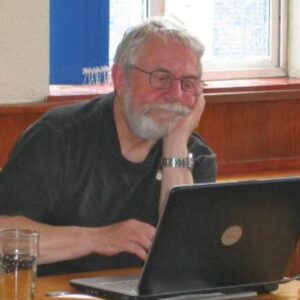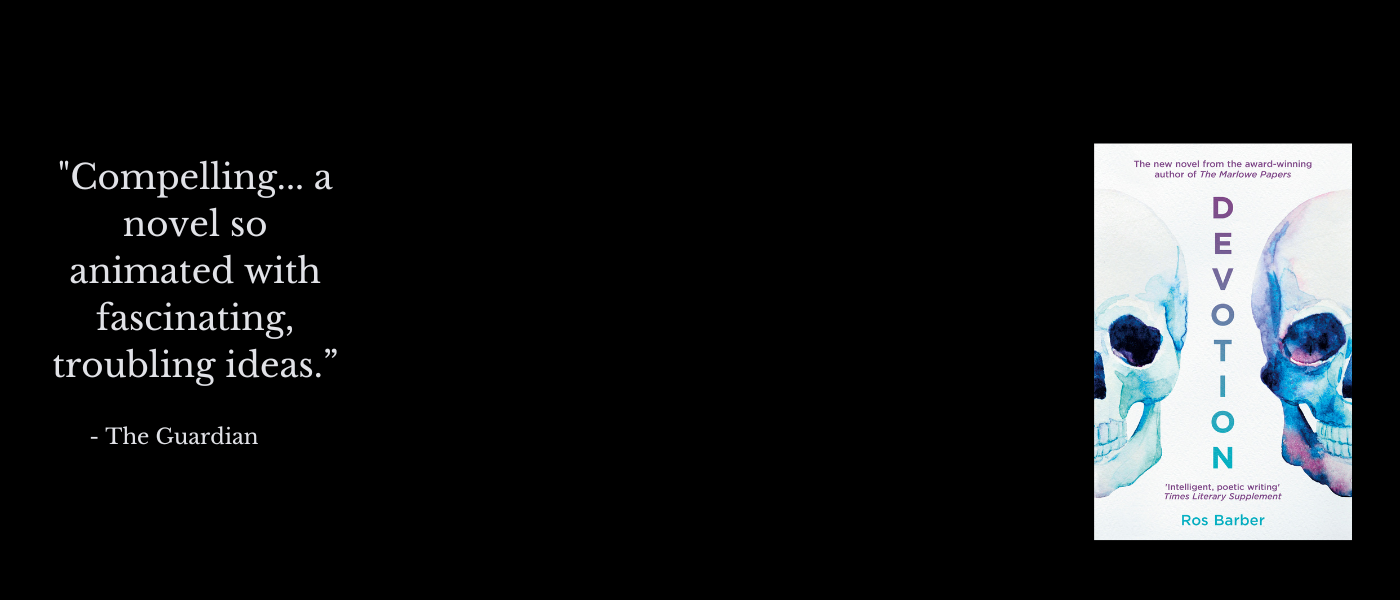My friend Peter Farey died early last year. This obituary was first published in the members’ newsletter of the Shakespearean Authorship Trust. I am reposting it here as an accessible tribute to a man whose loss I will always deeply feel.
 Peter Farey, the leading Marlovian researcher, has died aged 81. A cautious and diligent scholar, he was twice winner of the Annual Calvin & Rose G. Hoffman Prize for a distinguished article on Christopher Marlowe (2007, 2012). He was founder member of the International Marlowe Shakespeare Society (IMSS).
Peter Farey, the leading Marlovian researcher, has died aged 81. A cautious and diligent scholar, he was twice winner of the Annual Calvin & Rose G. Hoffman Prize for a distinguished article on Christopher Marlowe (2007, 2012). He was founder member of the International Marlowe Shakespeare Society (IMSS).
Peter’s love of Shakespeare came directly from theatre. His stepfather was assistant director at the Old Vic, and as a boy, Peter saw (for sixpence a seat) many fine productions, including Richard Burton playing both Othello and Iago on alternate nights. Peter himself began acting as a scholarship boy at Dulwich College (founded in 1619 by Edward Alleyn) and after leaving was in the first ever production of what would become the National Youth Theatre, alongside then unknowns, Simon Ward and Derek Jacobi.
After seeing Tyrone Guthrie’s Tamburlaine the Great, with Donald Wolfit as Tamburlaine, and learning that the first actor to play the part was the founder of his school, he also became “hooked” on Marlowe. As it happened, on joining the school he had been allocated to “Marlowe” house, and “whilst I acted in Shakespeare, I played rugger and cricket for Marlowe, ran for Marlowe, boxed for Marlowe, sang for Marlowe, and even acted for him, in the House Drama Competition.”
After school, Peter did National Service in the Royal Fusiliers, the Intelligence Corps, and Brixmis (officially based behind the Iron Curtain). After demob he joined BOAC, later to become British Airways, and stayed with them until taking early retirement in 1989. While at BA he specialised in management training and development, which taught him the techniques of clear thinking, problem solving and decision making that subsequently served him well as a researcher. He also gained an MA.
Peter Farey’s work first reached a wide audience in Shakespeare: New Evidence (1997) by A.D. Wraight. Knowing he had been in military intelligence, Wraight asked Peter to decode some encrypted letters she had found in Lambeth Palace archives. Peter’s son Rob was actually the one to crack the code, but subsequently Peter made a number of fascinating discoveries in the archives related to a man named Le Doux, then believed to be a possible posthumous identity for Marlowe. Shakespeare: New Evidence originally began as joint project, in which the first and third parts were written by Wraight and the second part (based on his archival research) by Peter. However, Wraight was unhappy with Peter’s criticisms about her suggested re-ordering of the Sonnets on which her argument in Part 1 depended, and he stepped away from the project. When the book was published in 1997, Peter did not receive a co-author credit. His work, though barely a word had been changed, was presented as Wraight’s.
Peter Farey’s importance to Marlovian studies is impossible to overstate, yet he published no book on the subject. As a diligent researcher who was always keen to refine his arguments, and correct them if they turned out to be mistaken, Peter preferred to present his research in online articles, both on his website and on Carlo Dinota’s blog, The Marlowe-Shakespeare Connection, where they can still be found. As his health began to fail, he compiled all the articles he considered still relevant into the manuscript for a book, updating them where appropriate. There are plans for this book to be published posthumously. Though he became less active as his health deteriorated, he remained a supportive correspondent to other Marlovian researchers. His final work, completed in summer 2019, was an entry for the Hoffman Prize.
Peter’s curiosity – a questioning rather than a dogmatic or didactic outlook – was the cornerstone of his scholarship. His approach, which involved remaining flexible enough to change one’s mind in the face of contradictory evidence, influenced many Marlovians. Peter positively sought to test his ideas with those who opposed them. He never allowed emotion to cloud reason when engaging in debate, and as a result, won friends and admirers on all sides of the authorship question. In the early days of online debate, he was an active member of humanities.lit.authors.shakespeare, where many Stratfordian/anti-Stratfordian exchanges took place. In later years, he participated in similar (always considerate) arguments on the Oxfraudian Facebook group. He became friendly with Tom Reedy, with whom he was often in polite conflict in the Talk section of the Wikipedia page for the Shakespeare Authorship Question, and when Reedy visited the UK, they arranged a joint research trip to Holy Trinity Church in Stratford-Upon-Avon.
So well-respected was he with the Stratfordian campaigners of the Oxfraud group that, on hearing of his death, they published their own tribute to him. As a testament to Peter’s brilliance in crossing divides and maintaining friendly discourse at all times – something to which we might all aspire – it seems fitting to give his opponents the last word:
“Peter Robert Farey was the leading proponent of the Marlovian authorship theory. His passing on Feb 2, 2020, at the age of 81, stilled one of the most interesting voices of Shakespeare authorship doubters. We of the Oxfraud group are saddened by his loss. Peter stood out from other advocates of alternative authorship candidates. He wrote numerous essays about Marlowe and the early modern era, many of which are on his website (http://rey.prestel.co.uk). He was awarded the Hoffman Prize in 2007 and 2012, for “distinguished publication on Christopher Marlowe.” He was a member of the Oxfraud facebook group, and frequently discussed his theories with us. In comparison with other anti-Stratfordians, Peter was careful about evidence and arguments based on it. He was able to maintain a respectful discussion, and though he did not change any minds, he earned the respect and friendship of many who disagreed with him. The intellectual power of the anti-Strats is greatly diminished by his loss. He will be missed.”


Peter was the ultimate scholar and gentleman. I was privileged to know him slightly by email and largely by his brilliant essays that will surely remain as classics of Marlovian research. I will be the first in line to purchase any posthumous publishing.
Very sad to hear of the passing of Peter Carey – I was just checking to see if he had added anything on Marlowe since last I looked a couple of years ago. Peter’s work absolutely riveted and persuaded me, so much so that I made a visit up to Corpus Christi when I visited England in 2009, and managed somehow to persuade the security guard to take me up to the Masters’ room so that I could look upon Marlowe’s portrait myself. For this wonderful moment in my life I have to thank the inspiration from Peter Farey’s work. Vale.
I should also mention, this is a fascinating book on Shakespeare’s Italian plays that reminds me of Peter Farey’s meticulousness – (2011) ‘The Shakespeare guide to Italy: retracing the Bard’s unknown travels’, by Roe, Richard Paul. Makes what I believe is a water-tight case that the author of Shakespeare plays lived in Italy for some years; and I think those of us who believe that Marlowe lived after 1593 on the continent don’t have to imagine too hard to put two and two together.
The most influential Marlowian of his time.
any hope, that all the great informations and resources on his online platform (having disappeared) can be rescued?
I’m very sorry to hear this-like Peter himself I became transfixed with the Marlovian Theory when I stumbled across a copy of Calvin Hoffman’s book in Greenwich Library-many moons ago-realised I lived in the district where Marlowe’s ending played out so it opened up the history on my doorstep & I have never been the same after reading it.
Peters site examining the events surrounding Marlowe’s
‘Fearful end’ is lucid,well reasoned & very thought provoking.
I had his website open in a tab in my browser for a long time and only when I investigated why it was now showing as “not found” did I discover why. His site is archived at the Wayback Machine (https://web.archive.org/web/20201015023804/http://www.rey.prestel.co.uk/).